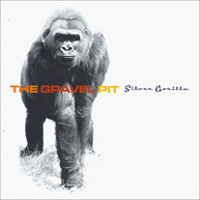 Spiritualized
Spiritualized
Ladies and Gentlemen We Are Floating in Space (Arista)
An interview with Jason Pierce (aka J. Spaceman)
by Nik Rainey
Will you allow me a bit of rock journalist hyperbole? I mean, that’s what we’re here for, right? Okay, I’ll say this once and I fully intend to stick to it – you will not hear a better album this year than Spiritualized‘s third release, Ladies and Gentlemen, We Are Floating In Space (Arista). If you’ve followed the singular course laid down by Jason Pierce (aka J. Spaceman), from the seminal noise-drone-psych-drug-gospel-raga ’80s combo Spacemen 3 to the transcendental meditations on love, loss, and languor of his present-day explorations, you probably have some idea of what to expect – until this record, all seventy layered, droning, cacophonous, soothing minutes of it, knocks you lengthwise, simultaneously fulfilling and utterly transcending those expectations. From the zero-gravity title track (probably the only song ever to conflate Elvis, Eno, and Pachelbel’s Canon in D Major) that opens the album to the seventeen-minute hoodoo-juju pulser, “Cop Shoot Cop…” (featuring the gris-gris gumbo ya ya of guest Dr. John), that closes it, this is the kind of all-encompassing magnum opus that can make you forget there’s any other music in the world while it plays.
Unsurprisingly, such a masterpiece didn’t come easily. The two years leading up to Ladies and Gentlemen… were fraught with false starts (he wrote a dozen songs on his 1995 American Pure Phase tour, and returned to England to discover he’d forgotten every one of them), logistical struggles (full string and horn sections and the London Community Gospel Choir all contributed to the sessions) and a nigh-obsessive search for the proper mix. “They always take a while,” Jason says by phone from London. “The recording itself was fairly quick but the mixing took eighteen months. I’d never had a 58-piece session before, and I had a lot of problems working with professional producers and mixers because we had the budget to use them for once. They’d come in and say, `you paid the money, this is what we do,’ and would be very rigid about that. I eventually realized that to turn this record into something else, something not so generic, I’d have to do it myself.”
 For Jason, that meant opening up the sound and fine-tuning the approach. “I think `progressed’ is the right word because we’ve progressed, we’ve changed the way we look at things. We’re always looking to go above and beyond what we feel we can do – that meant avoiding what might be thought of as the `Spiritualized blueprint sound.’ Using a gospel choir and a string section was a means to take it a little bit out of our control.” He cites Captain Beefheart’s Clear Spot and Sly and the Family Stone’s There’s a Riot Goin’ On as touchstones, but cautions against taking their influence too literally. “If we find something in our music that sounds like something else, we tend to edit it out. If we do something that sounds like Peter Brotzmann or Miles Davis or the Beach Boys it just goes. You can still find those records and they say what they say more than adequately. We’re not interested in saying things again.” On the few occasions he wishes to pay homage, extenuating circumstances intervene – the title track initially incorporated lines from the Pelvis’ “Can’t Help Falling In Love,” which had to be deleted when the song’s writer denied him clearance, delaying the album’s release further. “It’s kind of good that it’s been removed, actually – it just sort of came in as a reverential thing at the end, more of an afterthought, really – but if it had stayed it would have been misread as `oh, this is where it all started from’ just because it’s the only familiar bit in the song.”
For Jason, that meant opening up the sound and fine-tuning the approach. “I think `progressed’ is the right word because we’ve progressed, we’ve changed the way we look at things. We’re always looking to go above and beyond what we feel we can do – that meant avoiding what might be thought of as the `Spiritualized blueprint sound.’ Using a gospel choir and a string section was a means to take it a little bit out of our control.” He cites Captain Beefheart’s Clear Spot and Sly and the Family Stone’s There’s a Riot Goin’ On as touchstones, but cautions against taking their influence too literally. “If we find something in our music that sounds like something else, we tend to edit it out. If we do something that sounds like Peter Brotzmann or Miles Davis or the Beach Boys it just goes. You can still find those records and they say what they say more than adequately. We’re not interested in saying things again.” On the few occasions he wishes to pay homage, extenuating circumstances intervene – the title track initially incorporated lines from the Pelvis’ “Can’t Help Falling In Love,” which had to be deleted when the song’s writer denied him clearance, delaying the album’s release further. “It’s kind of good that it’s been removed, actually – it just sort of came in as a reverential thing at the end, more of an afterthought, really – but if it had stayed it would have been misread as `oh, this is where it all started from’ just because it’s the only familiar bit in the song.”
If familiarity breeds contempt, so do all the other trappings of rock’n’roll. Jason blanches at the dual mechanisms of personality and hype that oil rock’s star-making machinery. “That’s also a means to selling music – bands take that Maximum R&B/History of Rock’n’Roll approach and go off smashing hotel rooms, not realizing that you don’t need to read a word of press about the Who to understand that aspect of them, you don’t have to read about how many Quaaludes Iggy took or Jerry Lee Lewis’ stories of excess, it comes through in the sound of their records. I was talking with (legendary producer) Jim Dickinson about that in Memphis; he says `all good music is soul music,’ and I agree, whether it’s Stravinsky, Hendrix, or Arvo Pärt. That’s far more important to me than the press or record sales. The easiest way to make money is to knock a credible band together and imitate the current trend, like with this `electronica movement.’ I do like some of it, drum’n’bass especially – Aphrodite, Spring Heel Jack – but just as there are a million mediocre rock’n’roll bands out there, there are now the same number of really generic bands that get labeled `electronica.’ But what denotes electronica? Are the Beastie Boys considered electronica, and if not, why not? Can’t `Electric Mainline’ be thought of as an electronica track? How do you get into that elusive club? Can we join? Can we join, please?”
 Similarly, in spite of provocative titles like “No God Only Religion,” and tantalizing hints in songs like “Cop Shoot Cop…” that he’s saying farewell to the ethos of drugs, he is understandably reticent about being reduced to simple themes or explanations. “When I say `Ladies and gentlemen, we are floating in space,’ I’m not looking to establish some astral vibe, I’m just stating a fact. I mean, we all are, aren’t we? But I really don’t care what the take is. I don’t read my press, I’m not interested in the notion that talking for forty minutes to an interviewer will give a lot more people the means to form an opinion of you than will ever hear your music. The three words most important to us are `honesty’ and `no compromise,’ and I’m basically just doing what I’ve always done. I’m not in competition with anybody or anything, I’m just getting what I want out of it for me. And hopefully I’m doing something that will hold up over time, rather than just a generic, locked-in-its-time sort of thing.”
Similarly, in spite of provocative titles like “No God Only Religion,” and tantalizing hints in songs like “Cop Shoot Cop…” that he’s saying farewell to the ethos of drugs, he is understandably reticent about being reduced to simple themes or explanations. “When I say `Ladies and gentlemen, we are floating in space,’ I’m not looking to establish some astral vibe, I’m just stating a fact. I mean, we all are, aren’t we? But I really don’t care what the take is. I don’t read my press, I’m not interested in the notion that talking for forty minutes to an interviewer will give a lot more people the means to form an opinion of you than will ever hear your music. The three words most important to us are `honesty’ and `no compromise,’ and I’m basically just doing what I’ve always done. I’m not in competition with anybody or anything, I’m just getting what I want out of it for me. And hopefully I’m doing something that will hold up over time, rather than just a generic, locked-in-its-time sort of thing.”
He laughs. “I’ve been using the word ‘generic’ a hell of a lot today, haven’t I?”



